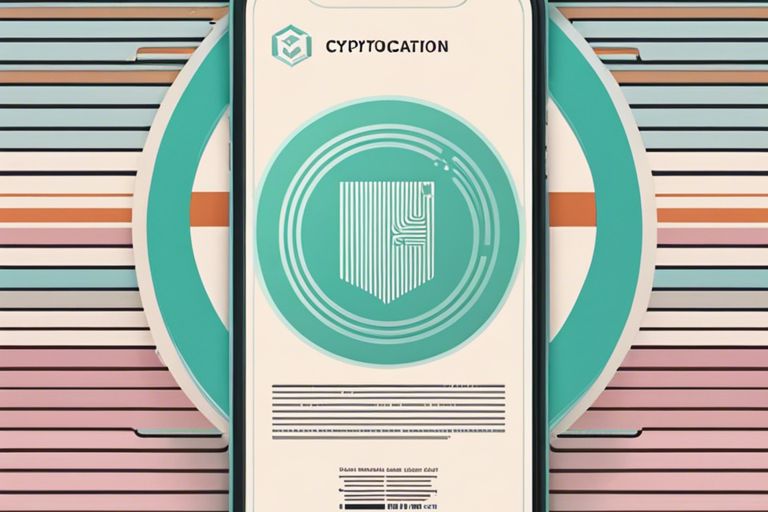Insider Secrets – How To Authenticate And Verify NFT Ownership
There’s no denying the excitement surrounding Non-Fungible Tokens (NFTs) and their potential for revolutionizing digital ownership. However, with great innovation comes great responsibility, and it’s crucial to authenticate and verify NFT ownership to avoid scams and ensure you’re getting what you pay for. In this guide, we’ll uncover the insider secrets to securely navigate the world of NFTs, protecting your investments and enjoying a seamless digital ownership experience.

Understanding NFT Ownership
What Does it Mean to Own an NFT?
To truly own an NFT means that you have the right to transfer, sell, or display the digital asset as you wish. Ownership of an NFT is recorded on the blockchain, providing proof of authenticity and ownership.
The Importance of Authentication and Verification
Any individual interested in purchasing or investing in NFTs must understand the critical importance of authentication and verification. Ensuring the legitimacy of an NFT is crucial to prevent fraud, scams, or misinformation within the digital art market. By verifying NFT ownership through blockchain records and metadata, collectors can guarantee the authenticity of their digital assets.
Importance: Authentication and verification processes are important to protect collectors from counterfeit NFTs and ensure the value and integrity of digital assets in the growing NFT market. By validating ownership through secure verification methods, collectors can confidently participate in the NFT ecosystem and safeguard their investments from potential risks.
Factors to Consider for NFT Authentication
Some important factors to consider for NFT authentication include:
- Blockchain Technology: Ensure the NFT is recorded on a blockchain using smart contracts.
- Digital Signatures and Encryption: Verify the authenticity of the NFT through secure cryptographic methods.
- Token Standards and Compliance: Check if the NFT complies with industry standards to avoid counterfeit tokens.
Any discrepancies in these factors can indicate potential issues with the authenticity of the NFT.
Blockchain Technology and Smart Contracts
An NFT’s authenticity relies on its presence on a blockchain, where smart contracts ensure secure ownership and transaction validation.
Digital Signatures and Encryption
Even in the digital world, signatures play a crucial role in verifying the authenticity of NFT ownership through encryption methods.
The use of digital signatures and encryption provides a secure way to verify and authenticate NFT ownership, protecting against unauthorized access or fraudulent activity.
Token Standards and Compliance
Nowadays, various token standards like ERC-721 and ERC-1155 ensure compliance with industry norms, making it easier to verify the legitimacy of an NFT.
Signatures, ranging from metadata to specialized coding, play a significant role in ensuring compliance and trust in the NFT marketplace.
How to Verify NFT Ownership
Tips for Conducting Due Diligence
Unlike physical assets, verifying the ownership of an NFT requires a different approach. One necessary tip for conducting due diligence is to always double-check the authenticity of the NFT by researching the creator and checking the history of the asset. Any discrepancies or red flags should be thoroughly investigated before making a purchase.
Using Blockchain Explorers and Analytics Tools
Analytics tools and blockchain explorers can provide valuable insights into the ownership and history of an NFT. By utilizing these tools, collectors can track the provenance of the asset and ensure its authenticity. One popular analytics tool is Etherscan, which allows users to view transaction histories and smart contract details.
Working with Reputable Marketplaces and Exchanges
Marketplaces play a crucial role in ensuring the legitimacy of NFT transactions. By working with reputable platforms like OpenSea or Rarible, collectors can minimize the risk of purchasing counterfeit or stolen assets. Reputable marketplaces also provide added security measures and support services for buyers and sellers, creating a safer environment for trading NFTs.
Advanced Techniques for NFT Verification
- Forensic Analysis of NFT Metadata:
Forensic Analysis of NFT Metadata
If you want to probe deeper into verifying NFT ownership, consider conducting a forensic analysis of the NFT metadata. This involves looking at the data stored within the NFT, such as creation date, transaction history, and any associated smart contracts. By analyzing this information, you can gain insights into the authenticity and history of the NFT.
- Identifying Red Flags and Potential Scams:
Identifying Red Flags and Potential Scams
Scams are prevalent in the NFT space, so it’s important to be vigilant when verifying NFT ownership. Look out for red flags such as unusually low prices for high-value NFTs, sellers with limited or questionable transaction history, and requests for payment outside of reputable platforms. Always conduct thorough research before making any NFT purchases to avoid falling victim to scams.
- Collaborating with NFT Experts and Communities:
Collaborating with NFT Experts and Communities
For a more comprehensive verification process, consider collaborating with NFT experts and communities. These individuals and groups have extensive experience in the NFT space and can provide valuable insights and guidance. By leveraging their knowledge and expertise, you can enhance your ability to authenticate NFT ownership and avoid potential scams.
Analysis: When verifying NFT ownership, it’s crucial to utilize advanced techniques such as forensic analysis of NFT metadata and collaborating with experts. By being aware of red flags and potential scams, you can protect yourself from fraudulent activities in the NFT market.
Conclusively
Understanding the intricacies of authenticating and verifying ownership of NFTs is crucial for both creators and buyers in the ever-evolving digital art market. By following the insider secrets shared in this guide, individuals can navigate the landscape with more confidence and security. It’s imperative to stay informed, remain vigilant, and utilize the resources available to ensure the legitimacy and provenance of NFTs. Embracing these strategies will not only protect investments but also promote a healthier and more trustworthy NFT ecosystem for all participants.
FAQ
Q: What does NFT stand for?
A: NFT stands for Non-Fungible Token.
Q: What are NFTs?
A: NFTs are unique digital assets that represent ownership of a specific item or piece of content using blockchain technology.
Q: How do you authenticate and verify NFT ownership?
A: Authenticating and verifying NFT ownership involves checking the blockchain records to confirm the token ID, owner’s wallet address, and transaction history.
Q: Why is it important to authenticate NFT ownership?
A: Authenticating NFT ownership is important to ensure the legitimacy and originality of the digital asset, preventing fraud or counterfeit NFTs from being circulated.
Q: Can NFT ownership be faked?
A: While it is difficult to fake NFT ownership due to the secure and transparent nature of blockchain technology, there have been cases of scams or misleading practices in the NFT market. It is important to do thorough research and verification before buying or selling NFTs.
Q: How can I verify the authenticity of an NFT marketplace?
A: To verify the authenticity of an NFT marketplace, check if it is well-known and reputable, has transparent transaction records, offers secure payment options, and has positive feedback from users and artists.
Q: Are there tools or services available to help authenticate NFT ownership?
A: Yes, there are various tools and services available to help authenticate NFT ownership, such as blockchain explorers, NFT tracking sites, and verification platforms that allow users to verify the legitimacy of NFT transactions and ownership.
![]()













